Episode 5
Sibling Revelations Part 1 of 2
S02 - Episode 5
November 30, 2024
26 mins & 49 secs
Speakers
Chris McLaughlin
Soren Peterson
Nathan McLaughlin
Bodie Peterson
About
In this 2-part episode, Chris and Soren are joined by their two younger brothers to discuss the unique experiences and valuable lessons learned from growing up with older queer siblings. They share how these relationships shaped their understanding of diversity and acceptance, providing a heartfelt look into the dynamics of a supportive family environment and the importance of allyship within the family.
https://www.youtube.com/@InspiredInsightsPodcast
inspiredinsights@inspiredcg.com
*Please note that this episode contains sensitive behavioral health topics such as suicide and substance use. If you are experiencing a behavioral health crisis, please contact the 988 Suicide & Crisis Lifeline by calling 988 or visiting www.988lifeline.org.
**This podcast is for information and entertainment purposes only and should not be considered health advice. This podcast is not intended to replace professional medical advice.
Transcript
Chris:
Hi, friends. Welcome to this week’s episode of the Inspired Insights podcast. Today, we’re kicking off something really special, our first two-part episode.
Sword and I invited our younger brothers to join us, and there was just so much good stuff to fit into one episode. So for part one, we’re going to dive into the conversation. Next week, we’ll bring you part two of these episodes.
So let’s get started. The Inspired Insights podcast is for informational and entertainment purposes only and should not be considered health advice. This podcast is not intended to replace professional medical advice.
Soren:
Please note that this podcast may contain discussions on sensitive topics such as mental illness, suicide and substance use. If you are experiencing a behavior health crisis or need support, please contact the 988-SUICIDE-AND-CRISIS-LIFELINE by calling 988 or visiting www.988lifeline.org.
Hello and welcome to the Inspired Insights podcast, brother edition.
I’m Sorin Peterson, a high school student and
Chris:
I’m Chris McLaughlin, Sorin’s co-host on the Inspired Insights podcast. We are out in nature again for another guest-filled episode. I’m going to introduce the good-looking gentleman to my right and my left to my right,
Nathan:
Nate McLaughlin, Chris’s younger brother.
Chris:
Younger, barely younger brother. And to my left,
Bodie:
I am Bodie Peterson, Sorin’s younger brother.
Chris:
And I actually think, fun fact, the age difference between you two is almost the same age difference between the two of us.
We are 14 months. No, you’re the engineer. Do the math.
Soren:
If it’s 14 months, it’s like the exact same as me and Bodie.
Chris:
June, we are July, August, September, October. We are 16 months. Yeah.
Bodie:
No, we’re like 22 months.
Chris:
Do you have two grade levels?
Bodie:
Not even two months.
Soren:
Oh, I thought it was 23 months. Perhaps.
Chris:
Oh, foolish. Older. So we just figured out we’re 16, but two grade levels different in school.
Nathan:
Yeah.
Chris:
Two grade levels different in school. So maybe not chronologically the same age, but school age-wise, the same.
Bodie:
Yeah.
Soren:
Roughly equivalent experience.
Chris:
That’s right.
That’s right. So Sorin and I, in planning some episodes for the second season of the podcast, thought it’d be really neat to start bringing in more voices to our conversations. And we thought, let’s go talk to our brothers.
Let’s get a sense of how our brothers may be experienced life with the personalities and dynamics of having two interesting older brothers might be like. So we want to talk about that. We want to talk about current experience, past experience, and then anything else you all want to talk about today.
So welcome. Thanks for being here. Good to see you both.
Sorin, how you been?
Soren:
Me? I’ve been lovely, as always. And I guess I’ve been prompted to start it off with our first insight of the day.
And something that is brother themed, I’d say, and has come up in me and Bodhi’s relationship many a time, is that those that are closest to you can often ignite within you the deepest rage and just deepest emotions, period. And I think that is something that often comes up in me and Bodhi’s relationship, but I wouldn’t say that it dampens our passion for each other.
Chris:
For sure. And my inspired insight of the week plays off of that a little bit. As I was hearing you share yours, something that I have thought about is, and maybe we’ll talk more about this during the course of our conversation, but thinking about how relationships can change over time and someone that you may have had that bitter enemy perspective with as kids can grow up to be one of your best friends and biggest allies and supporters.
So that’s going to be my insight for this conversation. Bodhi?
Bodie:
I guess I’m going to break off of the brotherly vibe, but still on topic, we’re looking at our past. I think oftentimes we look at our wrongdoings and mistakes as negatives, when a lot of the times they’re not negatives. If you look at them, they’re actually positives.
And there’s a lot of experience behind that, that helps you grow. And I was kind of inspired by a random YouTube short I was watching this morning, how the yogurt was discovered by a mistake of milk sitting too long. And then that sat too long and became cheese.
And every time that mistake was made and broken down, it became more valuable because yogurt’s worth more than milk and cheese is worth more than yogurt and milk combined. I love that. So I guess that would be my inspired insight.
Chris:
I love that. The biggest mistakes can turn out to be the most productive discovery.
Nate?
Nathan:
I saw the same thing you saw. That’s interesting.
This morning. My insight would be it’s never too late to become the person you want to be. And so, you know, I think as we navigate change, and as a parent, as you help your children navigate change, I think it’s important to remember, we’re not static, that we’re dynamic.
And whoever or whatever you want to become is possible. You can work towards it.
Chris:
Yeah, which is a huge theme for Sorin and I in this podcast is our better days are still ahead of us and that we’re all works in progress.
Soren:
For sure. Both of you actually made points that we’ve talked about a lot and how we can leverage mistakes in order to create positive change in our own lives.
Chris:
Yeah. Cool. Thanks for those insights.
So to kick the conversation off, I want to kind of get into the sibling, the brother stuff, and something that Sorin and I have talked about in preparation for this conversation. And at least in my relationship with my brother, I don’t think we’ve ever talked about this. But what was life like going back a couple of decades for us, maybe a couple of years for you both?
Nathan:
A couple of decades, that’s kind. A couple of decades. Maybe three.
Chris:
What was life like for you in a family where the older sibling was kind of different, not necessarily fitting in with what the rest of the kids on the street were doing?
Nathan:
Well, I’ll take a stab at it. Yeah. So I think, as I’ve heard you talk about in the podcast before, you know, you, Chris, you came out much later in your life than you, Sorin.
And so I think our experience together was one of you being closeted. Right. And you being not only closeted, but it was never talked about.
Chris:
Right.
Nathan:
Which I guess is close, but it wasn’t even like we were having a conversation in private. And so I think, you know, for me, as I would say, I was a fairly insecure adolescent and preteen as well. I think there was, it was confusion as I look back on it.
I think it was confusion about, you know, why you were different. Yeah. As you say.
And it was sort of like, I know my, the driving emotion I would have in the experiences where your difference would come out would often be one of anger. Yeah. Towards not you, anger towards whoever might’ve been bullying you.
Right. Or anger towards whoever was treating you different. I always wished, as I look back on it, that I could have acted on that differently.
I wish I was a more confident individual where I would have spoke up or talk to you about it. But I think for me at that time in my life, it was confusing. Yeah.
And so I didn’t really know what to do with that, that feeling of anger.
Chris:
Yeah. Yeah.
Nathan:
You know, I think, so I think as we, you know, we can get into kind of how our relationship has changed since you’ve came out, but I think as a, when we were living together in the same house on Poplar street.
Chris:
Yeah.
Nathan:
That was an often emotion I felt.
Chris:
Yeah. That’s interesting. We’ll definitely come back to that.
Bodie:
Yeah. You kind of touched on how like Soren was out at a very young age. Soren’s always drawn a lot of attention, which has definitely pulled some attention from me.
Which I’m not looking at that as a negative because that shaped me to who I am and that’s created my strong individualism and everything like that. As I’ve been me and I’ve allowed myself to grow as an individual and not allowed my family to hold me back or to try to baby me or anything like that. And I feel like it’s also a big difference is just the time that we’re growing up.
And you guys were in the eighties, the nineties, everything like that. Whereas me and Soren grew up in a very different time. I always accepted Soren as Soren.
And from a young age, I just, even though I was the younger brother, I still wanted to help Soren and motivate Soren and allow Soren to be who Soren was. I was probably 11 or 12 when, yeah, I was, I was 11 when COVID hit and all the pride festivals and everything were shut down. And I actually organized a private pride festival for Soren.
So I feel like it was a different relationship than every other kid, but that was our brotherly relationship and that’s who we are and what we grew up as.
Chris:
Yeah. Derek and I participated in that drive through COVID pride parade for Soren. And I remember as Derek and I were leaving saying like, that was really, really frigging cool.
That was really, really cool. And you were beaming that entire afternoon as I mean, there was what? 20, 30 cars of people kind of driving the loop where you all used to live.
Yeah. That was really cool. Bode, you bring up an interesting point about the time that we were coming to age and as being different and, and for Nate and I being two grades apart.
So kind of being in high school and the late eighties, early nineties, mid nineties almost, but yeah, where this was absolutely not talked about. I mean, I have shared with Soren, I can’t think of one kid at our school who was out, who was like publicly out as anything, LGB or T like.
Nathan:
I can think of a couple. I mean, I certainly wouldn’t name them. Yeah.
Right. You know, I can think of a couple, but, but a couple is not a huge number. Right.
Right. So it’s, I think it’s the same point.
Chris:
Yeah. And it was just, it wasn’t talked about. And for you all, Soren has talked about this at length.
Language is different. Um, the culture is different. What’s accepted or not accepted.
Bullying absolutely still exists. We know that’s sort of a universal, but now it almost feels like the kids doing the bullying are being looked down on as well. Like that’s not cool.
Bodie:
Yeah.
Chris:
To be an asshole to other people.
Bodie:
Yeah. He brought up confusion at like how you were confused on what was happening and whatnot. Um, but we had, me and Soren at least had the internet.
We’ve always had that. It’s always been very clear. And even before Soren was out from that, like I was three or four, but I still understood that there is a difference between Soren.
And as soon as I had access to the internet, it was very clear. Even like my parents were, it was very obvious that Soren was always queer and different. And Soren, um, was like always just this bold bubbly character.
So the confusion was not an element for me where it was kind of obvious, maybe, maybe less obvious for Soren as a confused individual growing up. But from the outside, it was very clear who Soren was. And I feel like that confusion was less of an element for me.
A lot of that was due to, um, the open discussion about it and the internet and everything like that, where it was very clear, very, um, accepted or more accepted at least than when you guys were growing up.
Chris:
Well, and I would also say, you know, the confusion is, is maybe equal parts about not understanding what the person is going through, but, but also that the messaging you’re getting from the world is not aligning with your experience with that person. Right? So like the world, whatever that is, is telling you that this behavior is wrong or, or, or deviant or that, you know, demonizing these groups of people, but your experience with them is nothing at all like that.
Right. And so I think to, to youth, youth, to youth, um, it’s, it’s just like how in any situation, how, when your experience doesn’t align with the messaging you’re being. Right.
Right.
Soren:
Yeah. Um, so bringing it back to confusion and perhaps away from queer issues. Um, what was your, uh, outlook when I was like quite mentally ill?
And obviously I think our parents kept you in the dark for a lot of stuff just to shield you from it. But, um, like, how are you processing that? What did you think at the time?
Uh, what, what was your perspective on what was happening?
Bodie:
I mean, it’s definitely a scary time. You seem like from the outside, you were losing you. Right.
Soren:
Yeah. And I, and I was treating you very poorly at the time as well.
Bodie:
And well, especially cause growing up with you, you had that bright, bubbly personality, everything like that. And that was fading, um, through time and everything like that, you know? So that definitely brought confusion for me.
Obviously I couldn’t understand what you were going through and, uh, both our parents were obviously trying to shield me, which for me, I almost feel like made the situation worse.
Chris:
Yeah.
Bodie:
Cause I will say I’m a bit of a control freak and I like to understand what’s going on and whatnot. Where do you get that? Yeah.
Right. Um, and not understanding what was going on and being sheltered and everything like that, I feel like brought up more confusion and almost scared me more because I liked being able to see the full picture, knowing that I couldn’t help, but still being able to understand what was going on. But at the time I couldn’t see what was going on and I was being sheltered, which has kind of made it worse for me in the time.
Chris:
And I imagine Soren, um, you grew up and are growing up in a family that is incredibly open. Like in your household, typically speaking, there’s no conversation off limits. You all talk about it all.
It’s wide open. And to have this experience be so different, like all of a sudden what’s happening is very closed off and, and quiet. And you’ve kind of felt in the dark.
I’m sure that increased the anxiety of the situation. Yeah, for sure.
Nathan:
I have a kind of a question if sure. So like, as you know, we’re focusing on what our experience was at that time period. I’m curious, like what each of yours experience was towards us as siblings who weren’t living that lifestyle or weren’t having, was, I’ll stop there as opposed to leading the way.
Chris:
Yeah. Do you want to start with that Soren?
Soren:
Um, yeah, I remember I was really mean to Bodhi. I was not kind and I was angry. I remember thinking a lot, like, especially when I was like quite suicidal, Bodhi was like the golden boy.
He was my replacement, right? Because like, the investment had been lost on me, basically. I was like, Oh, good.
I have a replacement, right? You guys have one healthy child. Why do you need to?
And I resented Bodhi for being normal. And I think I had placed a lot of anger and resentment towards like jocular people and like masculine men, because obviously I had some very negative experiences with that in middle school. And Bodhi, to me, especially playing football and all that, was the image of that.
So then I think I took a lot of my rage at the people that I saw as my persecutors, whatever, out on Bodhi and that really wasn’t fair to him. All while he was in the dark and I was actively engaging in really bad, unsafe behaviors and the like, and receiving treatment and all that. So I just feel guilty.
Chris:
Yeah. Yeah. That’s interesting.
And I totally understand. I totally get that. I think my experience, there’s some similarities there.
I also have very vivid memories of how things seem to come very easy for my brother. And so resentment, but for me, it was almost jealousy. And so, you know, hearing you say that you weren’t a very confident teenager, that wasn’t what was projected into the world, of course.
And so whether it was friends, sports, dating, just existing, just seeming so comfortable in your skin. And popularity is an interesting thing. Like we’ve talked about how it’s kind of shifted and now there isn’t one group that’s by default more popular than every other group.
Like you have a lot of academic and theater friends and those friends are super cool and super popular in those realms too. Back when we were in school, that was absolutely not the case. And so I saw Nate running with the cool kids.
And as we grew up, where we grew up was kind of isolated, kind of in the woods, 20 or so minutes to get in town. And so the kids on the street were your first playmates. And then people start getting licenses and driving and the ability to leave.
And I remember watching Nate leave and I wasn’t necessarily going anywhere. And so I kind of remember like feeling a little left behind, even though we had very different interests. But you might remember my junior year in high school, your freshman year, you were running, you were a big track, you know, jumping and running and all of that stuff.
And I took on the role of videotaping your track meets. And that was a way for me to be involved and fit in, knowing that I wasn’t going to do any running or jumping or any athletic anything to try to fit in. You also might remember my senior year in high school, I tried out for the tennis team.
And it was my first time ever trying out for a sports team. And I tried out because you had played tennis the year before, and I didn’t make the team. And I probably covered it okay.
But I was furious that here was my finally I got the courage to try something. And it wasn’t successful. And it was another way for you to go do straight boy things and need to not do those things.
Nathan:
So it wasn’t as being the most the parallel of straight boy.
Soren:
Good point. Good point.
Racket sports, a different breed.
Chris:
But yeah, so it wasn’t resentment. Like I was an angry similar to what you said.
I wasn’t angry at you. I was jealous. I was similar to what you said, maybe soaring about Bodhi, like watching the younger sibling embody everything that at that point in my life, I wish I had to
Nathan:
Can I share two observations of what you just said?
So it’s so interesting because it’s that it’s what you described where you started describing. It’s that trap we all fall into of comparing our insides to somebody else’s outsides. And so you were totally describing me or your perception of me as totally different than how I felt about myself.
And so it’s, there’s a lesson learned in that, right? You’ve got to compare your insides to other people’s insides. And that takes time to know what some of these insides are.
The other thing is just that experience with the tennis team is like something that stands out really prominently for me as well. And just when I was speaking before to the anger that I felt, I mean, I guess context matters. I mean, you were like, yes, you beat me all the time at tennis, right?
You were better.
Chris:
That’s the thing. I was better than you better than me.
And I knew it.
Nathan:
And, and, you know, so I went to the sort of pleaded that that wasn’t fair. Yeah.
Yeah. And, and it was whatever, I won’t get into the response, but it was just sort of like, that was that probably at that point in my life when I was a sophomore in high school, that’s probably when I was more comfortable sticking up for you. And so that’s just interesting that you bring that up because that’s one of the things that’s really stands out for me.
Chris:
Yeah. Those core memories of school.
And I think it’s important to note, as I think about the two of you, and I don’t, I’d have to think about it. I don’t know exactly when that, when this flip switched, Nate and I were mortal enemies. Like my fourth grade school picture has three or four claw marks down the side of my face from fights.
We got into knock down, drag out, close fist fight. It was almost a daily occurrence. And we still kind of talked to our mom about it.
It she will bring it up. Like she thought our one of our mom’s many greatest fears was that that was who we were going to stay into adulthood, that we were going to grow up and keep that. And I don’t even know, I think it was our closeness to age.
I think it was growing up kind of an isolated street in the middle of the woods. My friends were your friends. Your friends were my friends.
We were, we spent, we were each other’s playmates. We had to keep each other, like all of it. We were just together all the time.
Nathan:
And my anger came from somewhere totally different than your sexuality. Yeah. We can get into that.
Right. Right. That’s another whole, we can have a parents episode.
Chris:
Yeah. But I, you know, we daily multiple times a day as, and it’s so cliche and you know, you’re sitting on the couch and there’s the couch cushion and that little finger starts creeping over the line on the cushion. And it was immediately, mom, Nate’s on my side of the couch, like constant at each other.
And that’s sort of where my insight came from as we were prepping for this conversation is if I knew I wouldn’t have believed you. If somebody had given me a crystal ball and said, here’s the relationship you and your brother are going to have in just 15 years, I would have been like, hell no, no way. We were at each other’s throats quite literally.
And I, I’m kind of like, I feel bad for our parents a little bit that we were that Tasmanian double towards each other.
Nathan:
Well, and I, I feel bad for our younger selves.
Chris:
Thanks for joining us for part one of this two-part episode featuring Sorin and I’s brothers. Be sure to come back next week and catch the rest of this conversation. Until then, take care all.
Inspired Insights Podcast has been brought to you by Inspired Consulting Group, LLC.
Edited and produced by Amanda Seidel and Derek Harter. Marketing support for the Inspired Insights Podcast by Elizabeth Keenan. Music by Derek Harter.
Please visit www.inspiredcg.com to learn more. Copyright 2024. All rights reserved.
Show More
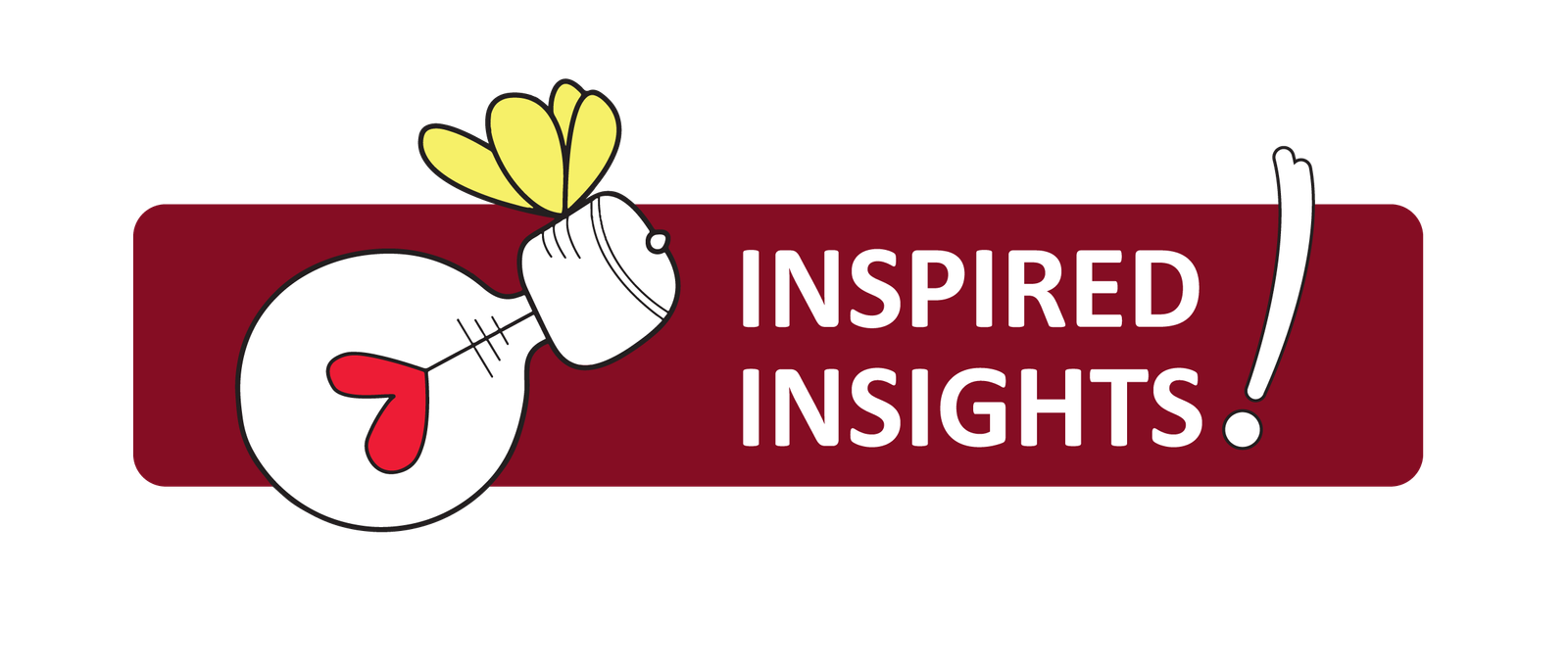
All Episodes
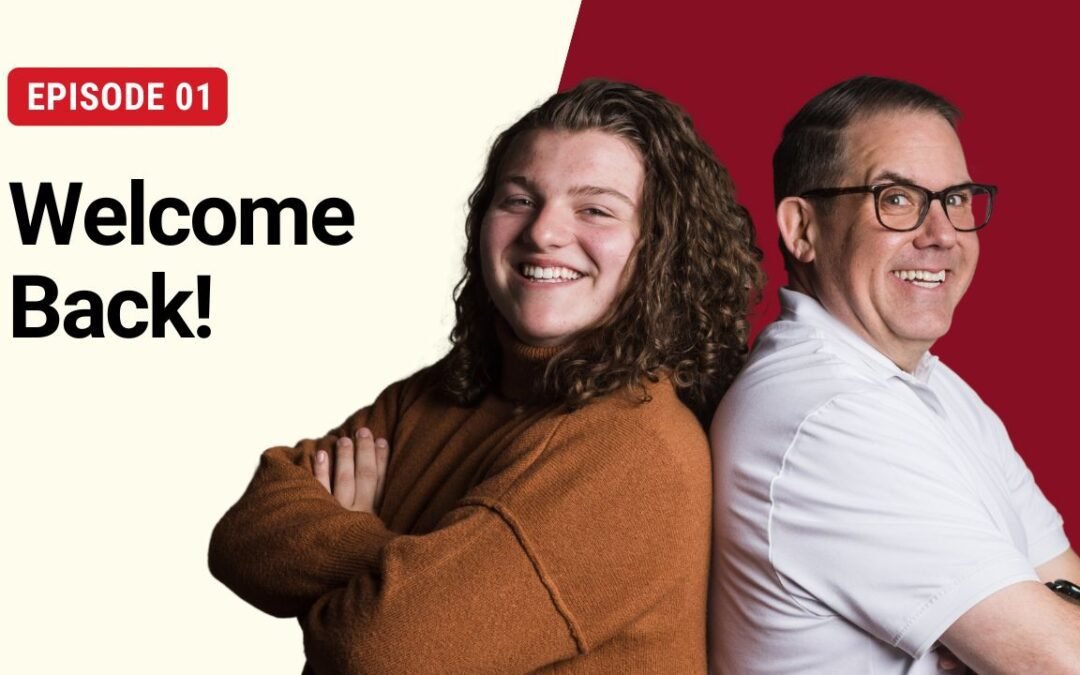
S3E1: Welcome Back
Welcome back to the Inspired Insights Podcast for the very first episode of Season Three! Join hosts Chris and Soren as they dive into a heartfelt conversation about the evolving world around us–and within us.
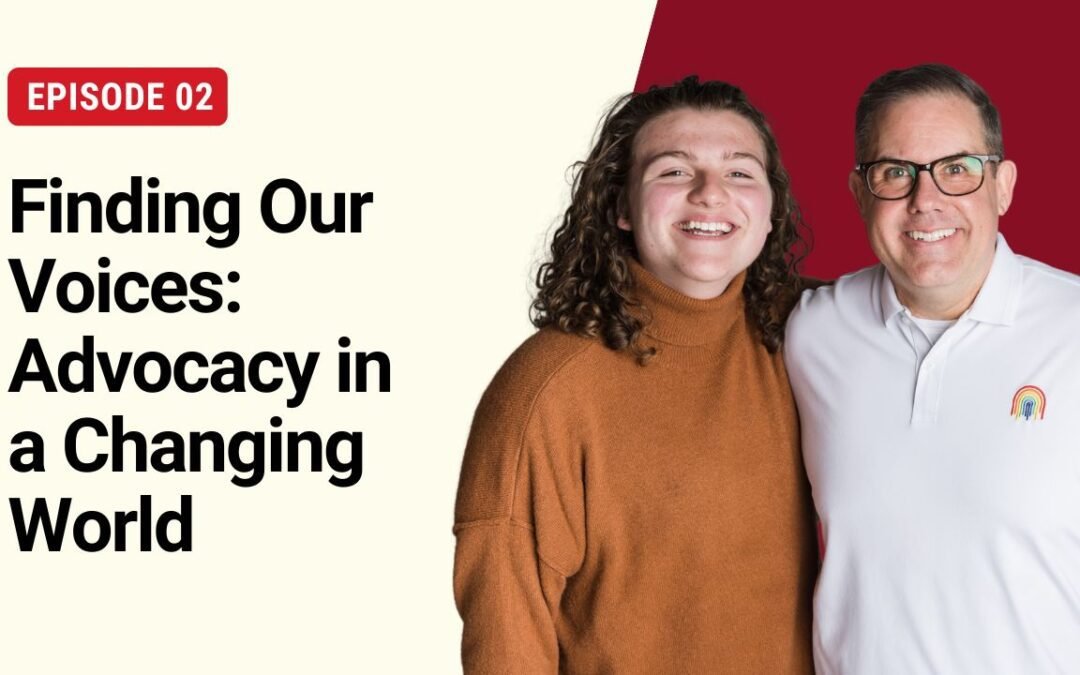
S3E2: Finding Our Voices: Advocacy in a Changing World
Chris and Soren sit down with seasoned lobbyist and tireless human rights advocate, Charlotte Warren, to explore the power—and the personal cost—of advocacy in today’s shifting political landscape.
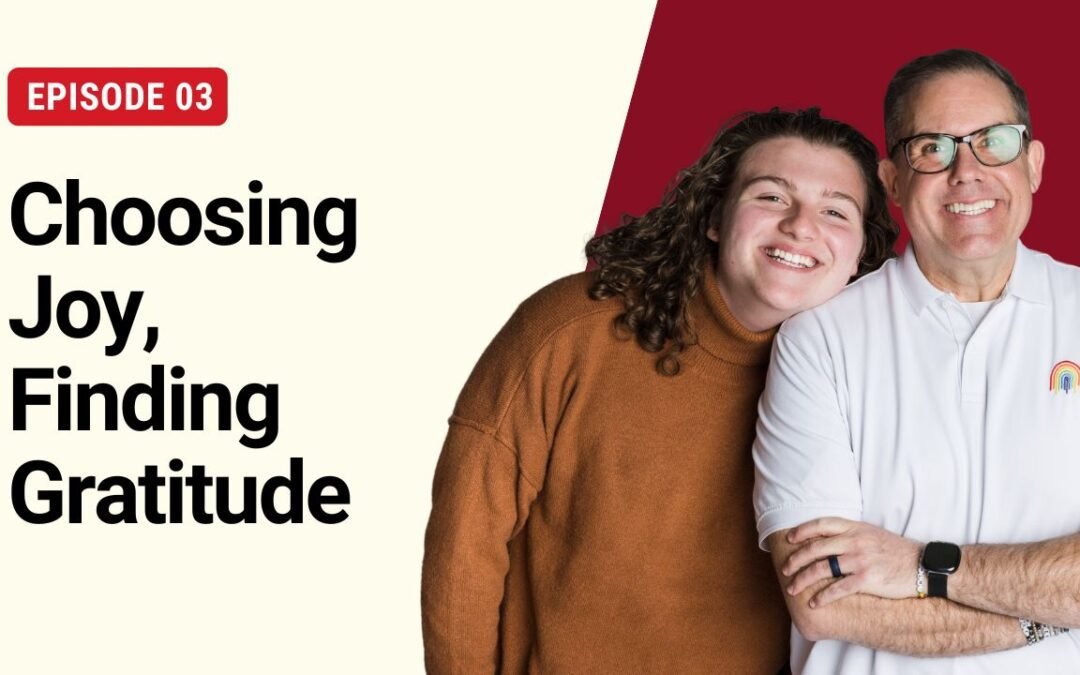
S3E3: Choosing Joy, Finding Gratitude
Chris and Soren unpack how reframing our thoughts can change the way we experience the world—from the inside out.

S3E4: The Power of Storytelling
Chris and Soren sit down with Authenticity Coach and Author Suzanne Carver to explore how sharing your story—and embracing who you truly are—can open doors to healing and transformation.
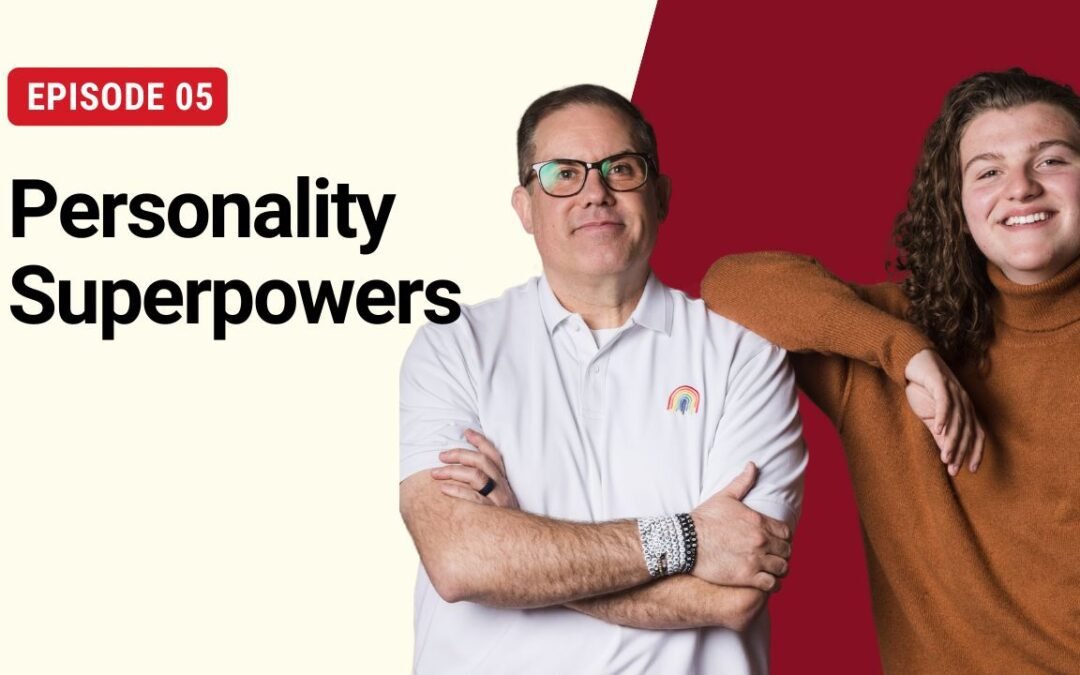
S3E5: Personality Superpowers
In this episode, Soren and Chris explore their Myers-Briggs personality types and how trauma and lived experience have influenced how they show up in the world.

S3E6: The Power of Pride
Together, they explore the deeper meaning behind Pride celebrations—why they matter, how they foster connection and visibility, and what it really takes to bring a community-wide event like this to life.
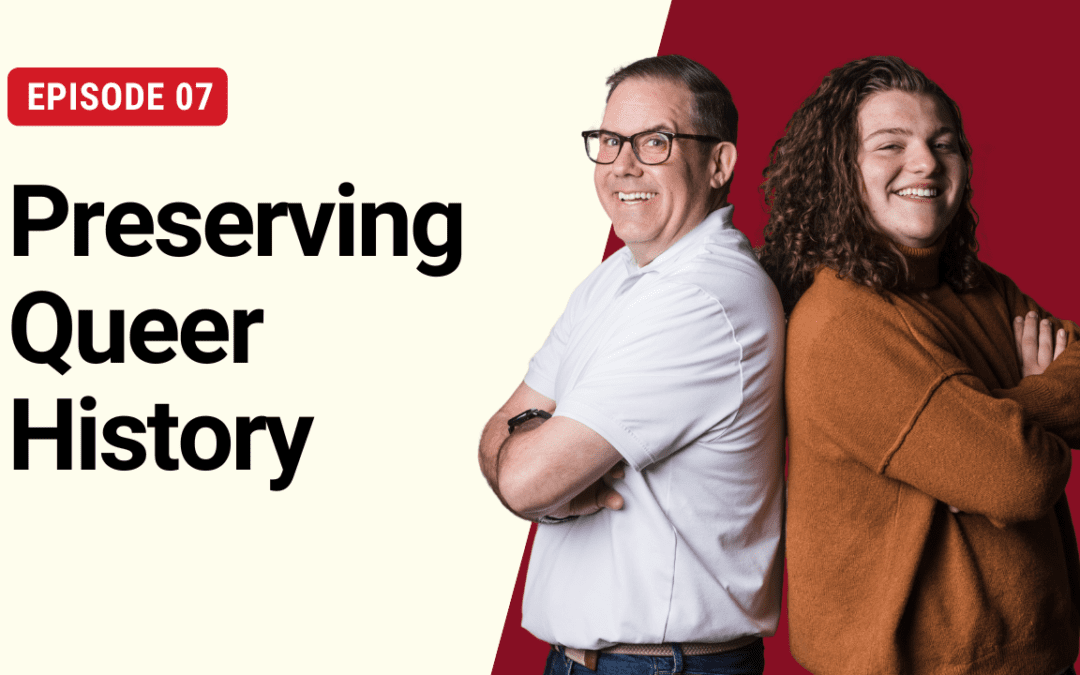
S3E7: Preserving Queer History
Soren and Chris sit down with special guests Sam and Emma to explore the vital importance of preserving queer history through storytelling and community memory.
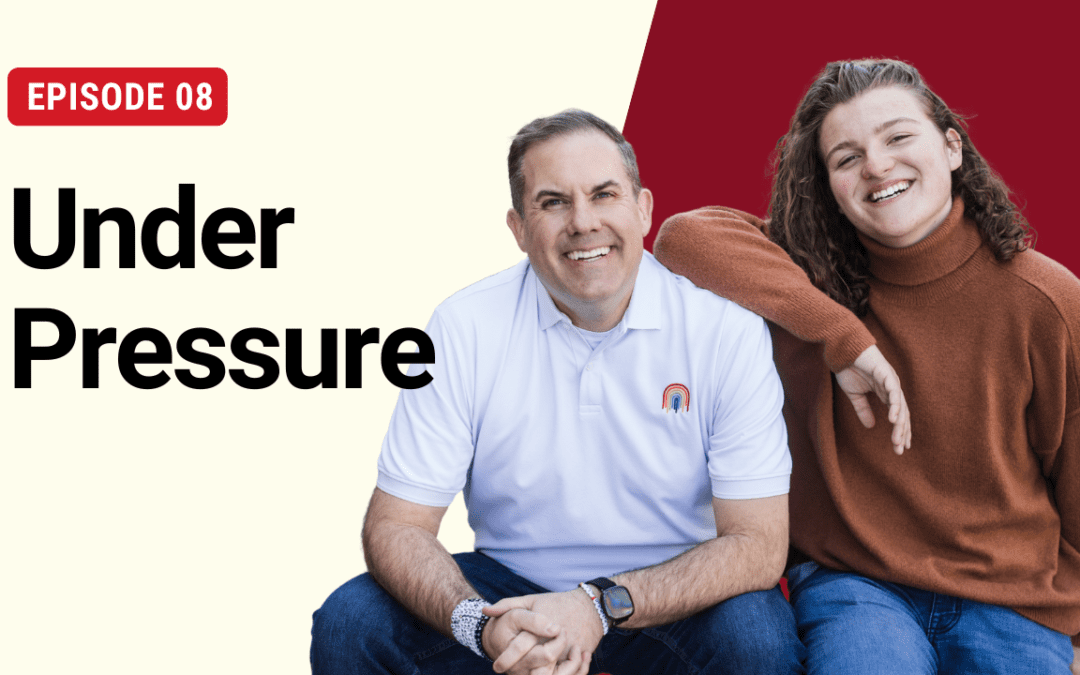
S3E8: Under Pressure
What happens when we let teens speak for themselves? In this candid and eye-opening episode, Soren and Chris hand the mic to two remarkable young adults—Sophie and Bennet
